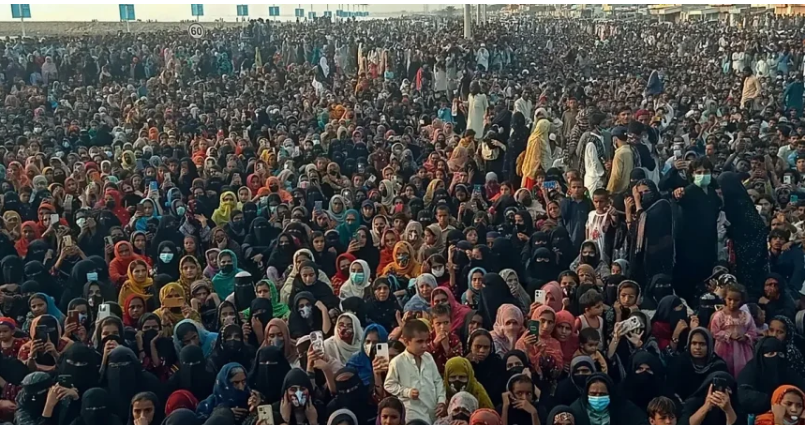
LAHORE
United Nations Special Rapporteurs and Working Group mandate-holders have raised serious concerns about alleged human rights violations occurring within the context of counter-terrorism operations in Pakistan’s Balochistan province. In a communication to the Pakistani government dated February 18, 2025, a collective of UN experts detailed a series of deeply troubling reports, highlighting the disproportionate impact of counter-terrorism measures on the Baloch minority, human rights defenders, and civil society organizations.
The UN communication outlines a range of alleged violations, including:
Arbitrary Arrests and Ill-Treatment: Reports of arbitrary arrests, acts of violence and mistreatment in detention, enforced disappearances, and extrajudicial killings targeting Baloch people.
Excessive Use of Force: Allegations of excessive force used against individuals, including peaceful protesters demanding information about the forcibly disappeared and seeking justice.
Misuse of Counter-Terrorism Measures: The misuse of administrative and legal counter-terrorism measures against Baloch activists and organizations, including the alleged designation of individuals as “proscribed persons” and arbitrary travel restrictions.
Media Censorship: Alleged censorship of media outlets covering activities and events organized by Baloch activists.
Legislative Amendments and Internment Centers: Reported proposals for legislative amendments allowing preventive detention of individuals suspected of terrorism, and the establishment of internment centers for such individuals in Balochistan.
Escalating Enforced Disappearances
The UN communication expresses grave concern over a reported escalation in enforced disappearances in Balochistan over the past 12 months. Enforced disappearances, characterized by the authorities or their agents abducting individuals and denying any knowledge of their fate or whereabouts, have allegedly been used as a tool to suppress dissent in the region since the 1970s, with a significant increase noted in the wake of the ‘war on terror’ after 2001.
The UN experts highlight the severe impact of enforced disappearances not only on the direct victims but also on their families, who endure prolonged periods of uncertainty and suffering.
Discrepancies in Data and Allegations of Impunity
While the Pakistani government established the Commission of Inquiry on Enforced Disappearances (COIED) in 2011 to investigate these cases, there are significant discrepancies between official figures and those reported by NGOs and human rights organizations. Civil society groups have criticized the COIED for its lack of effectiveness, independence, resources, and protection for witnesses, as well as its limited powers to hold perpetrators accountable.
The UN communication also points to a broader climate of impunity, with a lack of accountability for those responsible for enforced disappearances.
Concerns over Extra-Judicial Killings and Torture
The UN experts voiced alarm over increasing evidence suggesting that many forcibly disappeared individuals have been killed in custody. Baloch activists have reported hundreds of such killings, with allegations pointing to the involvement of Pakistani security forces. Furthermore, the communication details reports of torture and ill-treatment of individuals belonging to the Baloch minority during arrest and detention.
Crackdown on Peaceful Protests
The UN communication also addresses the alleged use of force against peaceful protests, particularly those organized by families of the disappeared. It cites specific incidents, including the crackdown on the Baloch Yakjehti Committee’s (BYC) peaceful march and sit-in, where protesters, including women and children, were allegedly subjected to intimidation, arbitrary arrests, and violence.
Concerns over Legal and Administrative Measures
The UN communication raises serious concerns about the misuse of the Anti-Terrorism Act (ATA) and proposed amendments to it. This includes the listing of activists and human rights defenders as “proscribed persons,” the imposition of travel prohibitions, and proposed amendments that would allow for preventive detention and the establishment of internment centers. The UN experts express fears that these measures could further suppress dissent, violate due process rights, and lead to arbitrary detention and ill-treatment.
Internet and Media Censorship
The communication also details allegations of internet blackouts and media censorship in Balochistan, which are seen as further restrictions on the flow of information and attempts to silence critical voices.
Call for Investigation and Compliance with International Law
The UN experts urge the Pakistani government to provide information and address the serious concerns raised in their communication.






